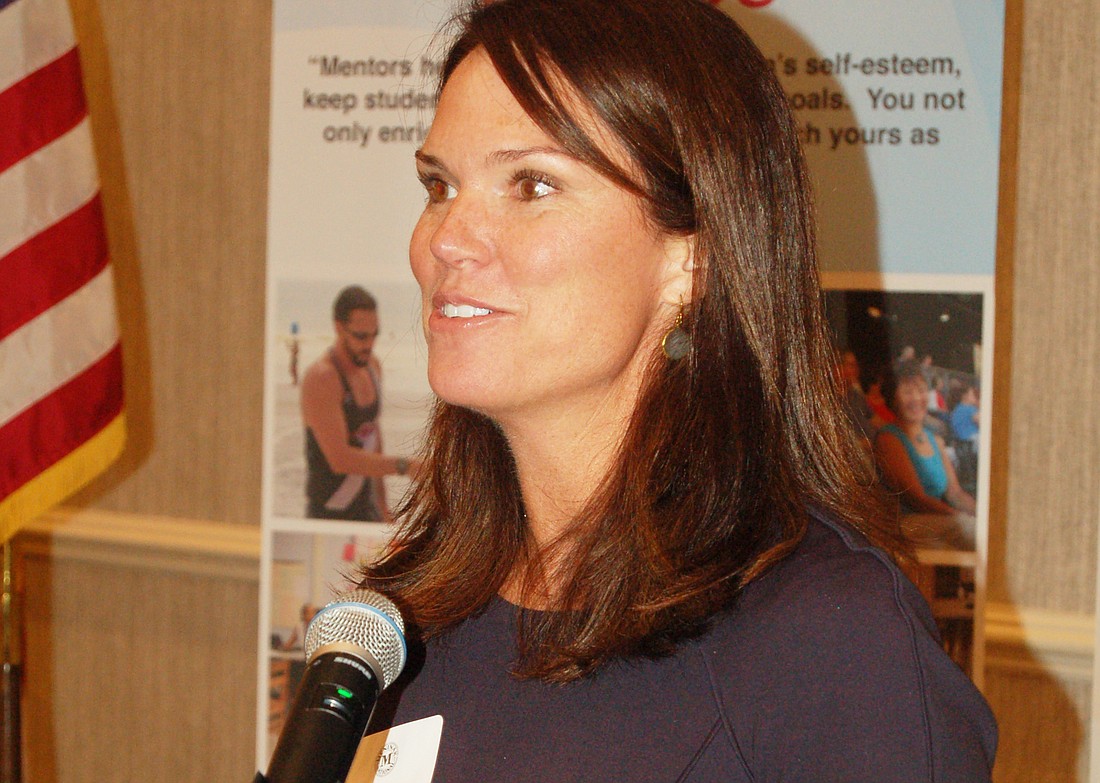
It seems counterintuitive to some, but State Attorney Melissa Nelson favors expanding programs that can keep some people from being prosecuted in the 4th Judicial Circuit.
Since Nelson took office in January, participation in problem-solving courts has increased by nearly 46 percent compared to the same period in 2016.
By diverting defendants charged with certain nonviolent crimes from the courtroom and into treatment, fewer cases land on the court’s docket and prosecutors have greater resources to devote to more serious crimes.
“I believe things are trending in a very positive direction,” she told the Meninak Club of Jacksonville on Monday.
People arrested in Duval, Clay and Nassau counties for nonviolent crimes related to drugs or mental health issues, and veterans arrested for alcohol- and/or drug-related offenses with a diagnosed mental health illness or a connection to their military service, may qualify for a treatment-based program.
Problem-solving courts are a combined effort of the State Attorney’s Office, Public Defender’s Office, Circuit Court administration, the state Department of Corrections and Law Enforcement and community service providers.
Successful completion can result in dismissal of charges if the defendant entered the program under pretrial intervention or prosecution diversion.
If the program is included as part of a sentence (condition of probation), completion of the program may be grounds to pursue early termination of probation and possible avoidance of a prison sentence.
It’s not a quick or easy process for the participant, however.
Drug Court, for example, lasts no less than 12 months.
Requirements include regular appearances in court before a judge; individual, group or residential substance abuse and/or mental health treatment; and random, observed drug and alcohol testing.
Also required is regular attendance at 12-step sober-support meetings such as Alcoholics Anonymous, Narcotics Anonymous and Rational Recovery, and participation in sober prosocial events.
Educational and skills assessments are provided, along with referrals for vocational training, job placement services and transitional housing when needed.
Participants must make a financial investment to take advantage of the program. It’s $480 for court fees and fees for service providers, plus an additional $50 application fee if the participant is represented by a public defender.
Entering the program is voluntary, but once enrolled, a participant may not voluntarily withdraw. Failure to complete the program likely will result in returning to the traditional justice system for trial, judgment and possibly sentencing.
Successfully completing the treatment-based process can mean the defendant graduates from the program without a criminal record, which makes it easier to integrate into society and get a job, Nelson said.
She pointed out that Duval County is No. 1 in the state in per-capita incarceration. And while crime is declining statewide, Jacksonville is lagging other major cities in crime reduction.
“That tells me the concept of ‘send them to prison’ isn’t translating into more safety,” Nelson said.
“One size fits all doesn’t work. We’re giving more thought to how we resolve cases,” she said.
“Prosecution gets involved after the bad thing has occurred. We are reactionary by nature, but we have a platform to effectuate positive change.”